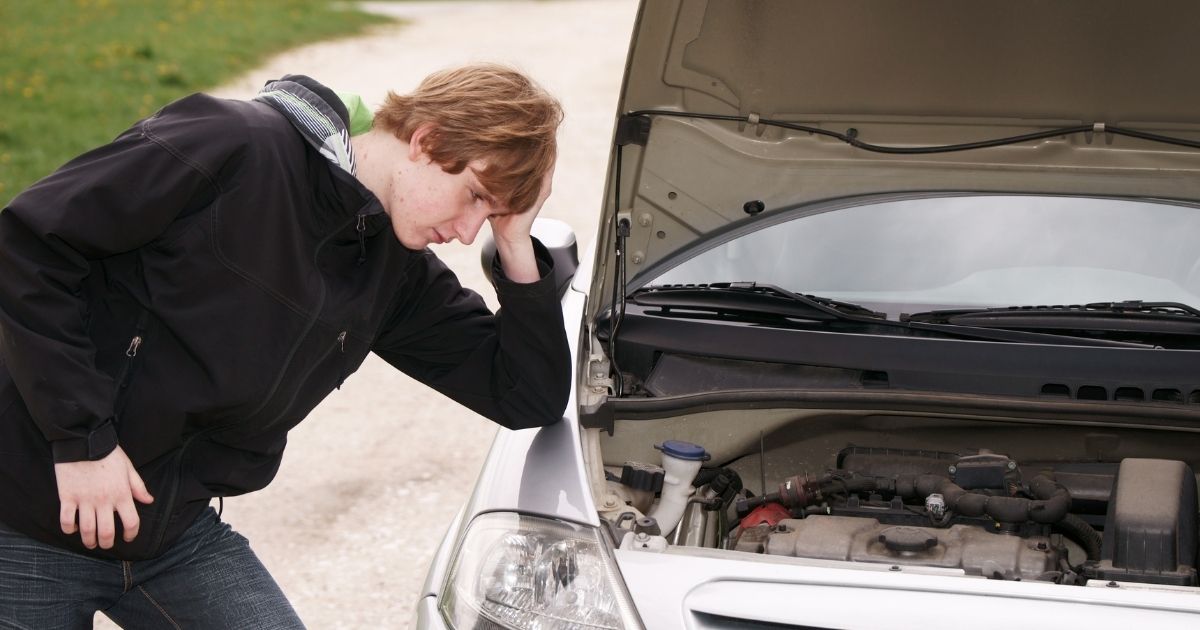When the braking system in your car is compromised in any way, it could lead to disastrous consequences. Leaking brake fluid is one major issue that causes reduced or even a complete loss of stopping power. A vehicle’s stopping power is essential to the safety of the driver, their passengers, and others on the road. Without it, the chance of a car accident increases dramatically.
Whether it is a car, truck, or SUV, a vehicle’s braking system uses hydraulics. That hydraulic system, which distributes brake fluid to all four wheels from the master cylinder to each brake caliper, requires pressure to force the brake pads to clamp onto the rotors, slowing the vehicle down. If brake fluid begins to leak, there is a loss of pressure and fluid in the system. This pressure and fluid are needed for the hydraulic system to work correctly. The brake pedal will go soft without it, and the car loses braking power.
What Causes Brake Fluid to Leak?
Brake fluid is colorless and operates up to 205 degrees Fahrenheit and beyond. It is stored in the engine bay in the brake fluid reservoir and courses through brake lines and other braking components in a sealed-off system. However, there are ways in which the fluid can leak out:
- Damaged brake lines: Brake lines travel from the master cylinder to each wheel. They can sometimes be damaged and leak fluid.
- Caliper seals: Brakes generate an enormous amount of heat, which can then cause the caliper seals to wear down, allowing fluid to leak out.
- Master cylinder: The brake master cylinder also has seals that can break down over time.
- ABS system: Some parts of the anti-lock braking system (ABS) hold brake fluid and may malfunction over time.
How Do I Know if There Is a Leak?
Because brake fluid is colorless, it may be hard to know if it leaks simply by checking underneath your car. Some signs that your brake fluid is leaking include:
- Check for fluid: If you know what to look for, a puddle of brake fluid can be found between the front of the car and the wheels if it leaks, which is where brake lines are located.
- Wheel wells: Check for an oily substance on the car’s rocker panels or wheel wells.
- Loss of pressure: When the brake fluid leaks, air can get into the system, which means a pressure loss. The brake pedal will then feel spongy and soft.
- Check the fluid level: The brake fluid reservoir is in the engine compartment, and if the level is low in the reservoir, it can be a sign of a fluid leak.
- ABS warning: If your brake fluid runs low or there is any problem in the braking system, many cars are equipped with an ABS warning or brake warning that will illuminate the dashboard.
Atlantic City Car Accident Lawyers at D’Amato Law Firm Help Those Injured by Brake Failure Accidents
When a car’s brakes fail, an accident will likely happen, leading to severe injury or death. You will need the best legal team if you have been injured in an accident. Contact our Atlantic City car accident lawyers at D’Amato Law Firm today. Call us at 609-926-3300 or fill out our online form for a free consultation. Located in Egg Harbor Township, New Jersey, we serve clients in South Jersey, including Atlantic City, Linwood, Galloway Township, Cape May, Vineland, Millville, Bridgeton, Ocean City, and Woodbury.
 Google Screened
Google Screened


